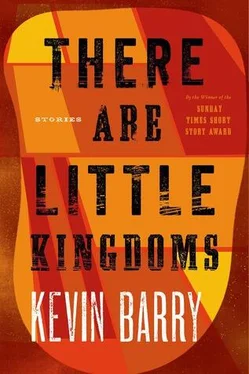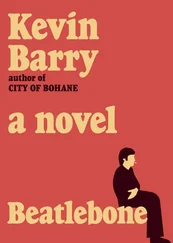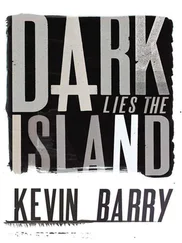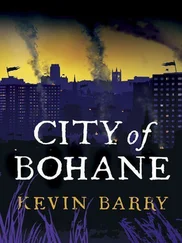She could taste a mercury note in her mouth and she wondered if this was in some way connected. She rose to leave. She was quickly getting towards the end of Jack. She saw that all was used to reinforce his masculine place in the world. All was weighed and tested for advantage. In everything that occurred, he saw possibilities for developing his own sense of himself: he had used the crisis merely to give a burnish to his self-importance.
‘Where you going?’
‘Stay where you are, Jack, I’m just getting some water. I’ll be a second.’
Everytime she left his presence she felt a delicious lightness come on her. She went lightly down the stairs and into the late throb of the party. The house was full of music and breathless talk and attempted romance but just as it peaked it began to fade, too, and people were tiring some, they were beginning to splay out on the cushions on the floor. The cheap drugs were wearing off and Sunday morning had begun to announce itself. It threw rain against the windows, like handfuls of gravel and nails, and there was stomach cramp and dryness of the mouth and morbid thoughts. Serotonin receptors tipped over like skittles — dead. Kay went to find her coat. The coats were in a pile behind the record decks and she winked at the dour-faced Northerner playing records.
‘Kay, what about you?’ he said.
‘Alright, Coll?’
His world was round, twelve inches in circumference, and made out of black vinyl. He had tight hair composed of tiny curls and he would take a curl and twiggle it between thumb and forefinger, a nervous tic. His calling was to educate the west of Ireland to the pleasures of old-skool Detroit techno. The trouble with this town was that people didn’t want to know. They wanted to listen to the same old same old, week in week out. They wanted the big tunes. They wanted the cheese. Well, they could look elsewhere. He wasn’t going to play ball. If they didn’t like it, they could piss off. If they wanted cheese, they could go down and listen to Sonny Byrne. They’d deserve each other, Sonny Byrne and that crowd. Fucking mouth-breathers the pack of them.
‘Do you know what I’m saying, Kay?’
But she was gone, she’d headed for the door, in a swish of auburn hair and a fun-fur coat. Little Miss Thing. Not that the thought hadn’t crossed his mind. What she was doing with the other creature he would never know. Jack Keohane? An excuse for humanity! An egomaniac! But that was this town all over, wasn’t it? It was all surface. Sometimes he wondered why he troubled himself with these people at all. They hadn’t a notion. To prove the point, he put on an old Derrick May, one of the first Rhythm Is Rhythm things — genius! — and he surveyed the room owlishly as it kicked in, but no. They didn’t get it. He twiggled a tiny curl between thumb and forefinger. He chewed a lip and sulked. He had enough of the place. He was going to take off, no question, one of these fine days, they wouldn’t see his arse for dust. They’d be sorry then, and they listening to Sonny Byrne and his cheese — big fucking piano tunes. The major problem would be the shipment of the records. There were several thousand and that amounted to serious dead weight. Everybody was sprawled and splayed, they were lying wrapped around each other on the floor. A handful of gravel against the window. He’d just put on an Orb album and leave it at that. It was as much as they deserved. He went through to the kitchen to search out Noreen. There was no sign of Noreen.
‘Nice set, Coll,’ said Helen.
‘Oh was it?’ he said, ‘was it really now? So what the fuck are you doing in here?’
She huffed out of the kitchen. The sooner somebody took that arsehole to one side and sorted him out, the better. Helen Coyle, if she insisted on anything, insisted that life should be mannerly. She was a petite dark-haired girl, carefully arranged, with an expression of tremendous pleasantness and openness. She thrived on neatness in all things. She had been at a loss, tonight, when she realised that her affairs had spun out of control. She was in the process of leaving Eoin for James. She sat on the stairs and reviewed the situation. She had not quite informed either of her plans. She felt that she had put enough out in the way of suggestion and signals, that they should each be able to grasp the new reality.
Dealing with men was like dealing with infants. If they weren’t puppy-dog, they were crude and arrogant, and which was worse? She wasn’t ever taking ecstasy again. It brought all this emotional crap up. And it… just… wasn’t… neat. She put her head against the banisters and closed her eyes. Eoin, in her opinion, had already stalled in life. When they first went out, he’d seemed to have everything opening up for him. He was rangy, good-looking, quickwitted, he was fit and active, he didn’t drink much or smoke much or do drugs much, he was sociable and presentable. But slowly, in the two years of their relationship, his terrible secret had slipped out: he was a settler. He would settle for the small solicitors firm in Galway. He would settle for a quiet, unperturbed life. He would settle for a house on Taylor’s Hill and a new Saab on a biannual basis, and he would involve himself delicately in the probate of small farmers and shopkeepers, and he would father unassuming and well-spoken children. But not with Helen Coyle he wouldn’t.
James, who was, inevitably, Eoin’s best friend, had a wider reach to his ambition. He was a broad-beamed, meat-faced man — at just twenty-two, there was none of the boy left — and he moved across the ground with a sure-footedness born of privilege. He had subtly courted Helen Coyle for the two years she had been involved with his friend — in the end, not all that subtly — because he had recognised early that in back of the pleasantness and openness there was an overwhelming want for progress. He saw that they would propel each other forward, through all the years and the bunfights, that neither would allow the other to slacken, not for a moment. James was handsome but in the way that a bulldog is handsome and in the cause of advancement he would have the grip and clench of a bulldog’s jaws. That was good enough for Helen Coyle — she’d made her decision.
Slowly, with a sense of building unease, the night gave away on itself. The slow fog of the mood drugs lifted and left nothing at all behind. Still there was some low music and people lay on the cushions and couches, and Alice, button-nosed, slept on her arms at the kitchen table. There was a tiny snoring sound if you crept up and listened to her quietly, and she dreamt of faraway places and pleasant young men in a warm light.
The nineteen year old from Roscommon had been rebuffed at every turn and he prepared for a cold wet walk out the long curve of the bay to Salthill. He would not spend on a taxi if there wasn’t cause to. They would already be unwrapping bundles of newspapers outside the churches and the gulls, raucous with winter, would circle down from the low sky in search of last night’s chips.
Helen went to her room upstairs and she quickly, neatly undressed and she stood for a moment with her left hand laid on her flawless belly — the satisfaction of that — and her pert nose twitched, she believed that she could smell smoke. She put on her dressing gown and followed the smell, it came from down the hallway, from the boxroom. She pushed in the door and saw Jack asleep on the narrow bed and the filthy old carpet smouldering on the floor. It was clear at a glance what had happened. His cigarette had fallen but there had been a piece of luck, he had the window open and rain had come in and put out the few flames that had started. It was almost at the finish of its damp smouldering by now. She went to find Coll, who shared the house, and yeah, a bucket of water, just to be sure. Fucking Jack! He could have put the whole place up, these old houses were always going up. Every year the Advertiser had another dreary tragedy, with names and ages and places of origin, from Carlow, originally, from Roscommon, originally.
Читать дальше












